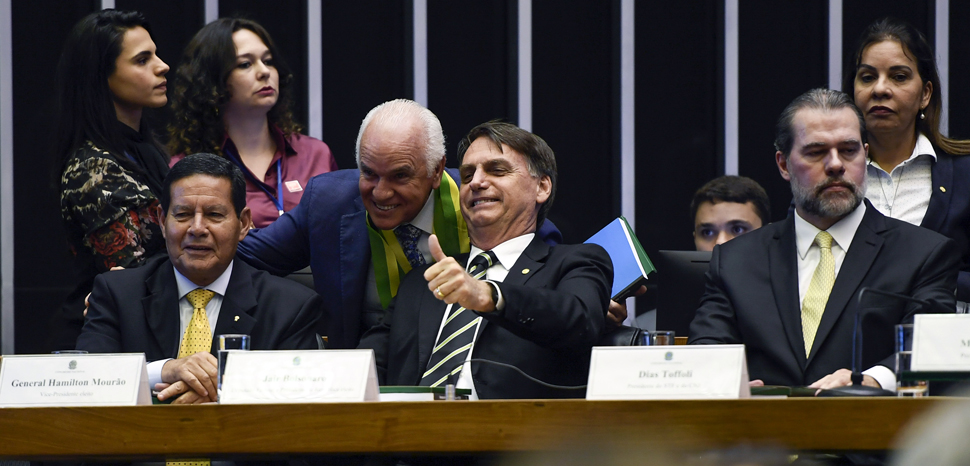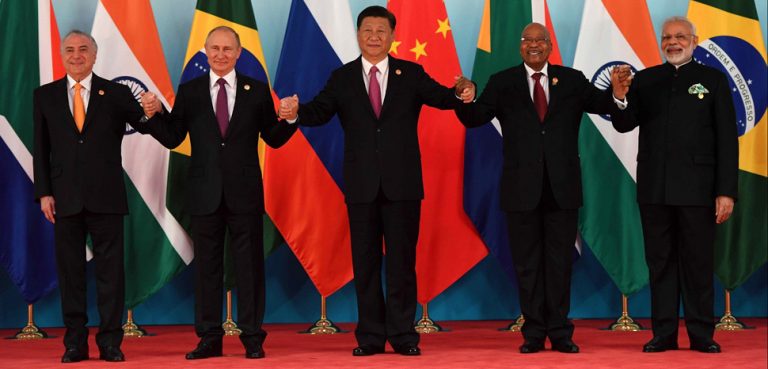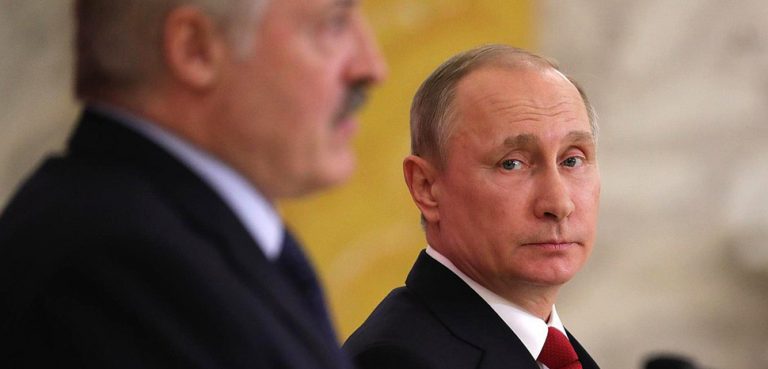Summary
Jair Bolsonaro will soon be sworn in as the president of Brazil, marking a decisive swing to the right for the country after years of leftist administrations. But his election is not just relevant for Brazil’s domestic politics; it will also have repercussions in the international sphere. In particular, we can expect Brazil to forge closer ties with (Trump’s) America, which could be bad news for the regional strategy of other powers like China and Russia.
Background
With a population of over 200 million citizens, a GDP of 3.24 trillion USD in 2017 (9th in the world), and a surface of 8.5 million square kilometers, Brazil is undoubtedly the dominant power in South America. It controls abundant natural resources (like oil, minerals, and timber), is a prominent agricultural producer, and has a quite a powerful military as well. Even though the country has been struggling to eradicate poverty and has long struggled to deal with the environmental fallout of mass deforestation, its international relevance has only grown over the past 20 years. Brazil is a member of the BRICS group that unites of the world’s emerging powers (the others being Russia, China, India and South Africa); and it is expanding its influence beyond its region. This expansion is made easier by geography: Brazil has comfortable access to the Atlantic Ocean, and therefore to rich regions like Europe and the United States, but also to Africa and the Middle East. Its geography is also favorable on land. The country includes large swathes of the continent, including most of the Amazon basin; it also has access to the Rio de la Plata in the south.
Leveraging these geographic features, Brazil has precise geopolitical objectives: affirming its influence over the URAPABOL area (formed by Uruguay, Paraguay, and Bolivia), and connecting the Atlantic and Pacific Oceans for trade with the U.S., Europe, and East Asia. For these reasons, it is also expanding its influence at sea by building up its navy.
Of course there are several challenges that Brazil must resolve in order to achieve these objectives, but in spite of the recent economic and political turbulences it remains the most important power in South America, and can therefore be considered the continent’s geopolitical pivot. This is why Brazil’s foreign policy alignment is a significant matter, notably for the US and for its competitors like China and Russia.
Impact
In theory, Brasilia’s geopolitical interests could collide with those of the US administration. A powerful and assertive Brazil could turn into a competitor and challenge the pre-eminence of the US in the continent, even becoming a security threat in the most extreme case, especially if it decided to side with US rivals. As a matter of fact, China and Russia view Brazil’s rise favorably because it would represent another step towards the emergence of the multi-polar order that they hope will eclipse US hegemony.
In this optic, Bolsonaro’s election could be a positive development for (Trump’s) America. The reason is to be found at the individual level of foreign policy, and especially in the personalities and political beliefs of the two presidents. Both present themselves as strong leaders who pledge to restore the greatness of their countries, to eradicate their problems in a direct manner and to preserve the stability of their respective societies. They adopt a straightforward style in policy-making and in political debate. In other words, the two leaders employ a very similar discourse that appeals to public discontent, one based upon outright and even chauvinist patriotism and on the need to protect their countries and their societies from destabilizing factors like crime and immigration. They have even attracted very similar criticism in their respective countries, with opponents calling them populists, nationalists, xenophobes, misogynists and the like.
Bolsonaro and Trump also share very similar views on many themes. On social issues, they are both close to Christian movements and hold a conservative stance on matters like abortion, same-sex marriage, and the legalization of recreational drugs. Both oppose immigration, presenting it as a vehicle for crime, cheap labor that harms national workers, and in general as a threat to the societal security of their countries. They have pledged to curb criminality and are in favor of the death penalty. They also oppose firearms regulation, arguing that it represents a violation of a citizens’ right to self-defense and even that weapons are useful to guarantee public safety. Both support free-market economic policies such as deregulation and privatization. And both are supported by powerful lobbies (the oil & gas industry for Trump, agribusiness for Bolsonaro, and gun rights advocates for both). The two presidents also favor business over environmental protection or the rights of native peoples.
But the similarities extend to foreign policy as well. Both have a rather “self-centric” view of their country’s role in international affairs and are committed to preserving their national interests. Both are sceptic over international organizations and their approach is mainly economy-driven. They share a very friendly attitude towards Israel: Bolsonaro has declared his intention to follow Trump’s lead and move Brazil’s embassy to Jerusalem. He has also suggested that his first official trip abroad will be to the Jewish state. Both criticize authoritarian states like Iran and Venezuela, take a zero-tolerance stance on terrorism, and have expressed concern over China and its economic penetration in their countries. But most importantly of all, Bolsonaro is openly pro-American. He wants to foster ties with the US and its allies, especially Asian ones like Japan, South Korea, and Taiwan.
As such, it is clear that his election is very good news for America, and especially for President Trump. Considering their similarities, Trump has just found a useful ally to pursue his foreign policy agenda and (re)extend Washington’s influence into South America. Despite the 2013 declarations of then Secretary of State John Kerry that the Monroe Doctrine was over, in reality its fundamental logic persists: considering Brazil’s prominent role in the region, having positive ties with Brasilia is a virtual guarantee of achieving Washington’s main geopolitical objective in South America of maintaining its hegemony and precluding the possibility of an external power spreading its influence over the continent. At the same time, this is potentially a major setback for Beijing and Moscow. The PRC has been building up its presence in South America in the past decade, including in Brazil, but soon the country will be ruled by a President that mistrusts China and on the contrary is friendly to the U.S. and Taiwan.
Forecast
Given the two leaders simpatico political views and the lack of any real foreign policy friction, it appears likely that Brazil and the United States will deepen their political and economic ties over the next two years. Brazil can pursue its own foreign policy as long as it does not challenge America; and it is very unlikely that it will, especially with Bolsonaro in charge. As such, this two-year period that both leaders are assured to remain in power may be enough to foster longstanding bilateral ties and, most importantly, to undo much of the progress that China has made in South America until now (and to a lesser degree, Russia).
Bolsonaro’s Brazil will enable the United States to easily extend its influence across the continent and push back the influence of competing powers, all the while freeing energies to focus on other areas of the world. This represents a major success for Washington, as acknowledged by US National Security Advisor John Bolton.
For their part, Beijing and Moscow will see recent inroads in the region imperiled; as Brasilia, at least for the next few years, will not become an alternative pole of power in the American continent to counter Washington. The cohesion of the BRICS group, which is already strained by Sino-Indian tensions, will also suffer during this period. As such, Russia and/or China may look to other regional powers to fill the gap. Unfortunately for them, the choices are limited. The best alternative is Argentina, but gaining it (if they manage to) would still not compensate for Brazil’s loss. Its position is not as good, its power is inferior and most importantly it is facing another period of severe financial instability. Mexico could be an interesting choice due to its location, but it too has longstanding domestic problems to solve.
Finally, some regional powers may benefit from Bolsonaro’s election. The main example is Argentina. The future president expressed his support for kindred spirit in Macri, and it is possible that the two countries will develop closer ties (if Macri himself can survive the ongoing financial turmoil there). This is a positive development for Argentina, as it may help to revive the country’s economy – first by developing the partnership with Brazil, and second, in a more indirect way, by garnering benefits from both the spillovers of the US-Brazil friendship and from the fact that China and Russia may invest their resources in Argentina to compensate for recent setbacks in Brazil.
In conclusion, Bolsonaro’s election is not only a matter of importance for Brazil, but also for the rest of South America. It may one day be looked back on as a seminal geopolitical event for the region. And though the long-term consequences of Bolsonaro’s unlikely victory remain to be seen, one thing is abundantly clear at this early stage: it’s good news for the United States, and bad news for China and Russia.




